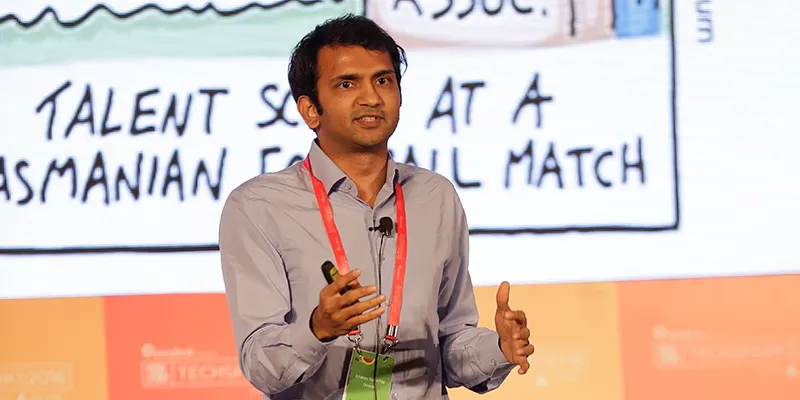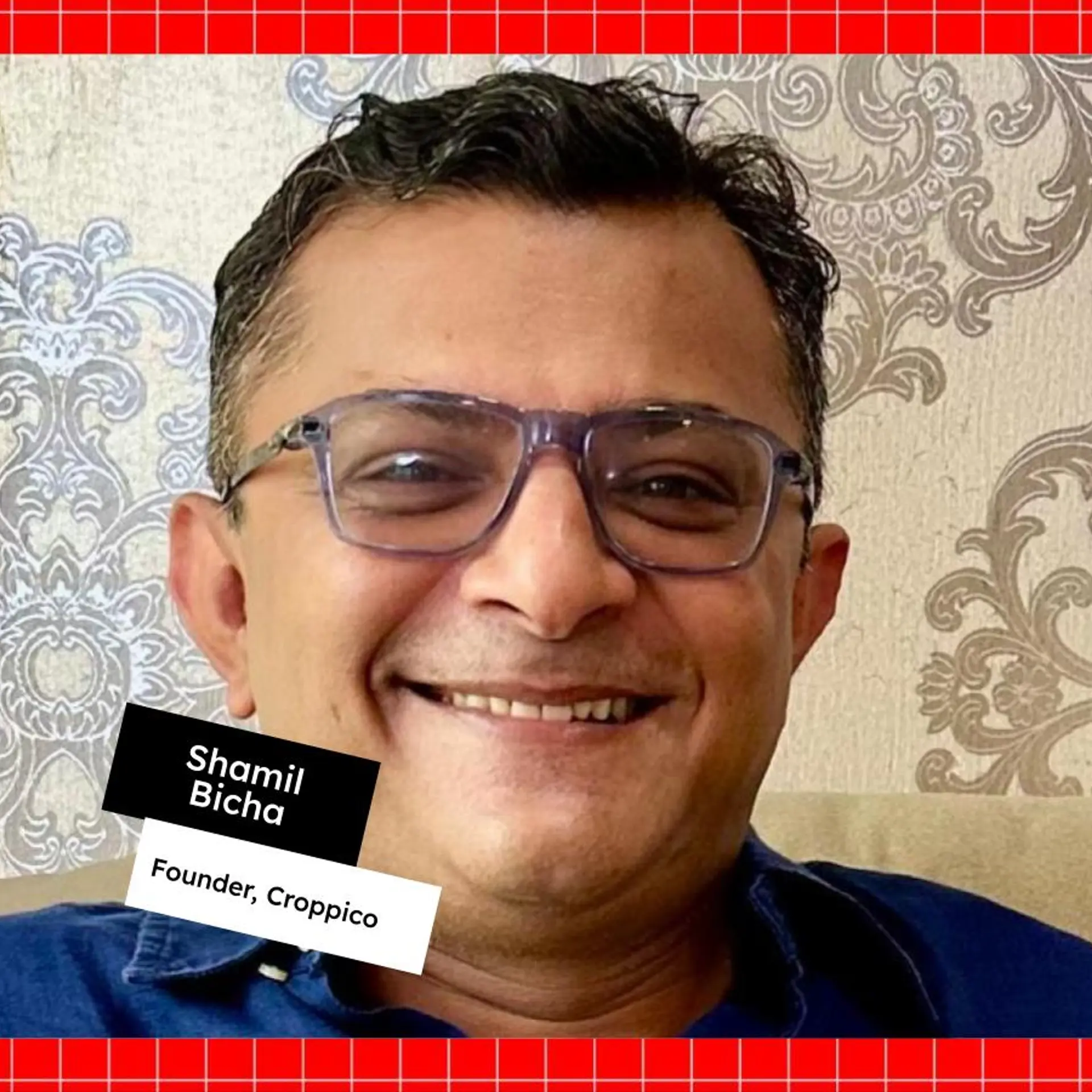Young Indians should take risks, says Bhavin Turakhia
Bhavin Turakhia of the Turakhia brothers-fame is a self-confessed geek. The brothers recently made news when they sold their venture, Media.net, to a Chinese consortium for $900 million.

Bhavin, who is also the Co-founder of Directi Group, believes that technology is the biggest enabler in driving innovation. Founded in 1998, Directi today has 11 business units, four of which were sold to Endurance International Group in January 2014. At present, Directi’s business units include Ringo, Flock, Zeta, Radix, and Codechef.
In a free-wheeling chat with YourStory on the sidelines of TechSparks2016, Bhavin, 36, said it was love at first sight for him when he first laid eyes on a computer. “This was before the internet. Before even Windows, when there was only MS Dos and GW Basic and stuff. I was programming since then,” he said. According to him,
“We couldn’t afford a computer at home so I used to spend three hours everyday after school skipping the school bus and taking the regular bus home. I did this for three to four years. I love maths and physics so programming was a natural extension.”
How to inculcate a mindset for innovation
On the question of why Indians lack a mindset for innovation, Bhavin feels that it is not as if a person is inherently innovative or not. “It is the environment you are brought up in that makes you that way,” he added.
Giving the example of the Indian mindset, he said parents often want their children to take up a job with an established large corporation or a government service. It is like, ‘Mera beta will join a big company, marry and settle down.’ Bhavin said, “Yes, there are inherent high risks in entrepreneurship. But the rewards are equally high, and at the end of the day you are making an impact.” He added,
“I fundamentally live by the credo that it is our moral obligation to make an impact that is directly proportional to our potential.”
Besides parents and families holding back an individual to take the path less travelled, Bhavin feels the second problem is our education system. “It guides us towards this process of learning and acquiring skills but not towards building and entrepreneurship,” he said.
However, things are changing fast. He said,
“Acceptance will come when we and media celebrate victories and do not criticise losses or failure. Think about it as pivoting instead of failure. A person who has failed has tried. He/she has put a life’s efforts and persevered but did not succeed. Let’s celebrate that.”
Calling out to the media, he said the more the media will celebrate failure, the less it is going to be a taboo as a subject. Consequently, it will become easier for people to acknowledge and say, ‘yes, you know, this is what is acceptable and this is what I want to do.’
Parental support important
Recalling his own childhood spent in Mumbai, Bhavin said that his parents were very supportive. “Our parents were amazing. My dad read a lot, and that influenced me too. Between the ages of 10 and 14, I must have read loads of biographies like IBM, Intel, Apple, Microsoft, Oracle, and Xerox. My dad always said you can achieve anything you set your mind to,” Bhavin said.
He added that though his father did not always agree to the route he took – he switched from science to commerce and dropped out and started his own company – but he was supportive and said ‘you should make your own mistakes and we’ll support you no matter what.’
“Everything that I am today, 99 percent credit goes to him,” said Bhavin.







